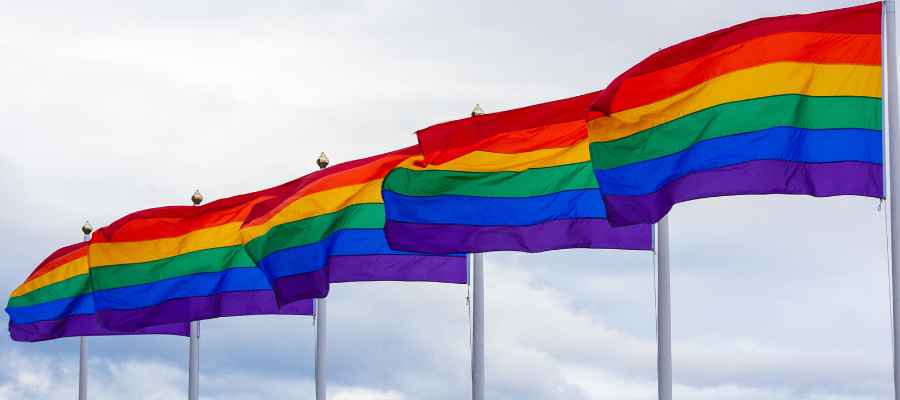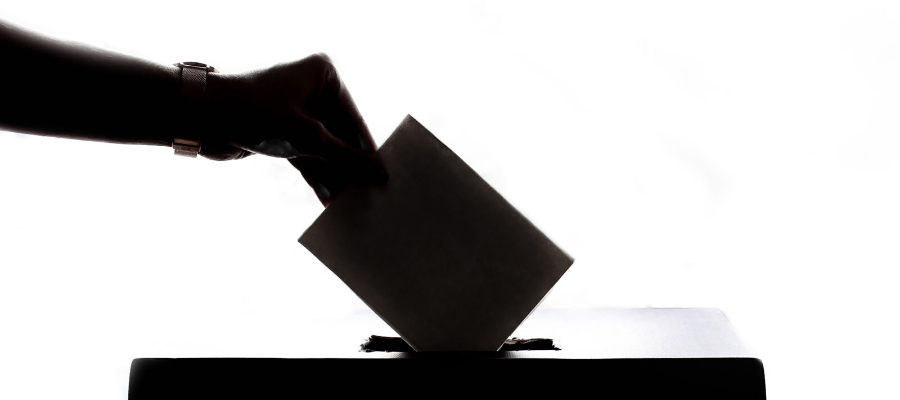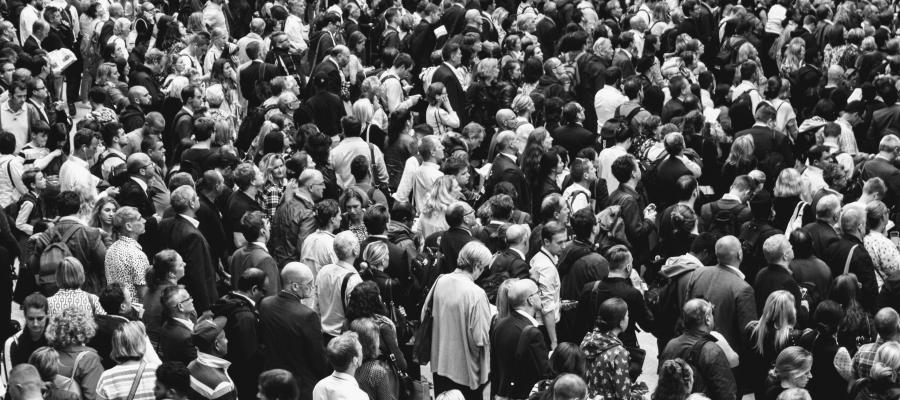Your Question: Habermas and Factions
30
Jun 2017
Does Habermas believe that factions are good because of the authenticity of their rationally discursive sources but bad because real discourse is limited by interfactional communication prohibition? -John in Berkeley
Read moreRacial Profiling and Implicit Bias
18
Jun 2017
We might agree that the practice of racial profiling—police or security targeting individuals for investigation because of their race, ethnicity, or national origin—is wrong. But the question is, exactly why is it wrong?
Read moreQueerness
04
Jun 2017
Is queerness something that all lesbian, gay, bi, and trans people have in common? Is it a sexual identity, a political identity, both, or something else entirely? Sometimes “queer” is used as a slur, yet there are many people who proudly self-identify as queer.
Read more[VIDEO] What Makes for a Good Life?
02
Jun 2017
It's one of philosophy's greatest and oldest questions: how should we live our lives? Seeking pleasure? Knowledge? Self-actualization? Is there meaning to be found in this life? Must we create it ourselves?
Read moreHabermas and the Fate of Democracy
20
Jun 2017
Habermas has thought about the rise of a sort of authoritarian populism and the value of an inclusive and equal public sphere. On top of his intellectual pursuits, he has made a concerted effort to not to restrict his thoughts on democracy to the philosophy seminar room.
Read moreAi Weiwei: How Censorship Works
05
Jun 2017
How does censorship really work? And what are its effects? To what extent are ordinary citizens responsible for government censorship? Dissident Chinese artist Ai Weiwei takes to The Stone to make his case.
Read moreWhy Do We Work 40 Hours a Week?
15
Jun 2017
How did the standard 40 hours a week work schedule become so ubiquitous? Should we keep this standard or abandon it? Would we be more productive if we worked less? Does more time to reflect increase or decrease productivity?
Read moreA Deep Dive into Democracy
01
Jun 2017
America’s so-called democracy is under serious strain these days. Some fear that the system may soon be stressed to the breaking point. So we thought we’d start out the summer with a deeper look at Democracy in America.
Read moreTruth and Progress in Philosophy
06
Jun 2017
Students of philosophy might sometimes get frustrated because they don’t get definitive answers to the sorts of questions that philosophers ask. But are these frustrations based on a misconception of the relationship between truth and progress in philosophy?
Read more[AUDIO] How Important is Privacy?
17
Jun 2017
We have a tendency to desire at least some degree of privacy, allowing us to live part of our lives outside of the public eye. Is privacy foundational to our lives? How much does privacy deserve to be protected when greater safety often comes with its sacrifice?
Read moreConceptual Penises and Failed Hoaxes
09
Jun 2017
Recently, an assistant professor of philosophy at Portland State University named Peter Boghossian and a PhD in math named James Lindsay attempted to reinvent the Sokal Hoax in an effort to discredit an entire field of academic study. Turns out the joke's on them...
Read moreShould Philosophers Get Political?
08
Jun 2017
Do politically engaged philosophers tend to become part of self-righteous, moralizing, and vindictive internet mobs? Is there a way for philosophers to engage politically without losing the clarity, rigor, and reasonableness that is distinctive of philosophy?
Read morePsychopathy and Evil
12
Jun 2017
How ought we to understand psychopathy, especially child psychopathy? If some unlucky children are wired to lack empathy or remorse, can we justifiably call them evil? To what extent can an action be labeled evil in the absence of choice?
Read more#FrancisOnFilm: Guardians of the Galaxy 2
13
Jun 2017
Guardians of the Galaxy Vol. 2. is a fun movie with psychedelic colors, battles in space, and great ’70s music played on a Walkman. But it also touches on the famous brain in a vat thought experiment, which raises the skeptical problem: how do you know all your experiences aren’t illusory?
Read morePawns of ISIS
21
Jun 2017
Who exactly are the pawns of ISIS? There's the stereotypical image of a Muslim young man, whose mind has been infected by ISIS propaganda. But there are also the Islamophobes, who take themselves to be fighting against any form of Islam, but who are unwittingly executing ISIS strategy.
Read more[AUDIO] Time Biases
23
Jun 2017
We all have preferences around when good or bad experiences happen, but some of those preferences cause us to make poor or irrational choices. These are knows as time biases. But are time biases always harmful or can they sometimes be helpful? Would being temporally neutral lead to a better life?
Read moreThe Unnatural is the Political
26
Jun 2017
The belief that some things are natural while others are unnatural is part of the common currency of human thought, but we rarely pause to consider exactly what it means to say that something is unnatural. It’s important to do so because this concept is politically very potent.
Read more#FrancisOnFilm: Is Wonder Woman a Feminist Movie?
28
Jun 2017
Wonder Woman is a wonderfully engrossing movie, but is it a feminist one? The answer depends on what you think it means to be a feminist and what you make of the beauty of Gal Gadot.
Read moreHabermas, Rationality, and Democracy
29
Jun 2017
Habermas believes that genuine democracy is rooted in the principles of communicative rationality. Though I think it is very much an open question whether rational argument can ever take place in a democracy—especially one like ours that seems very far from what Habermas envisions—I do hold out some hope that we may eventually be able to design a public sphere in which reason regularly wins out over power and propaganda.
Read more
















